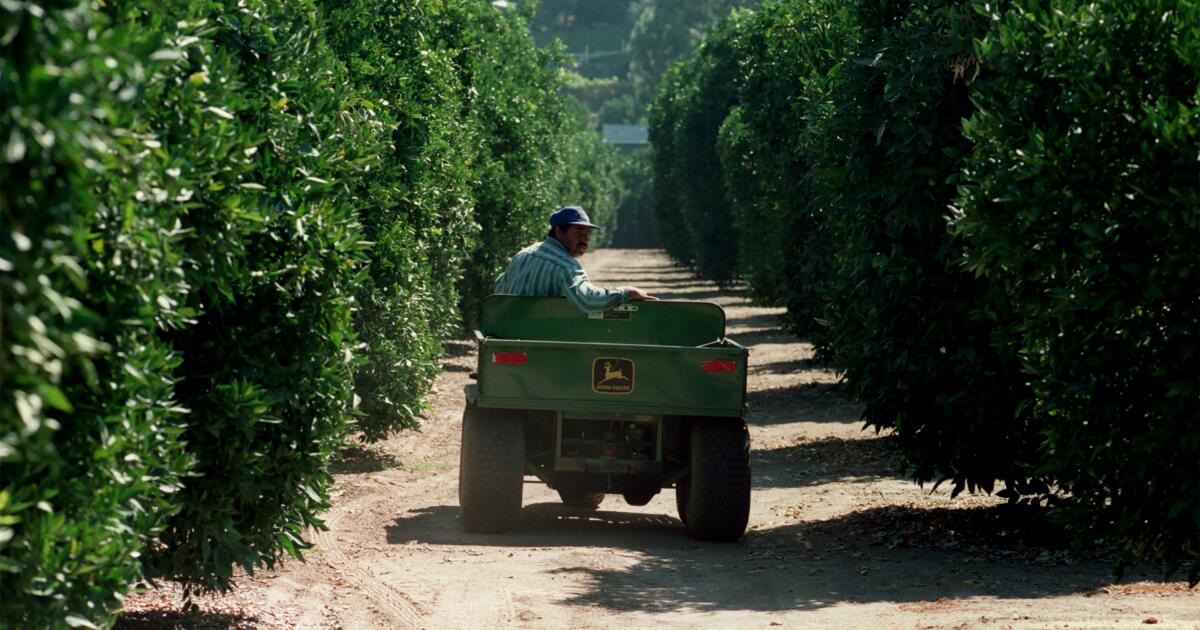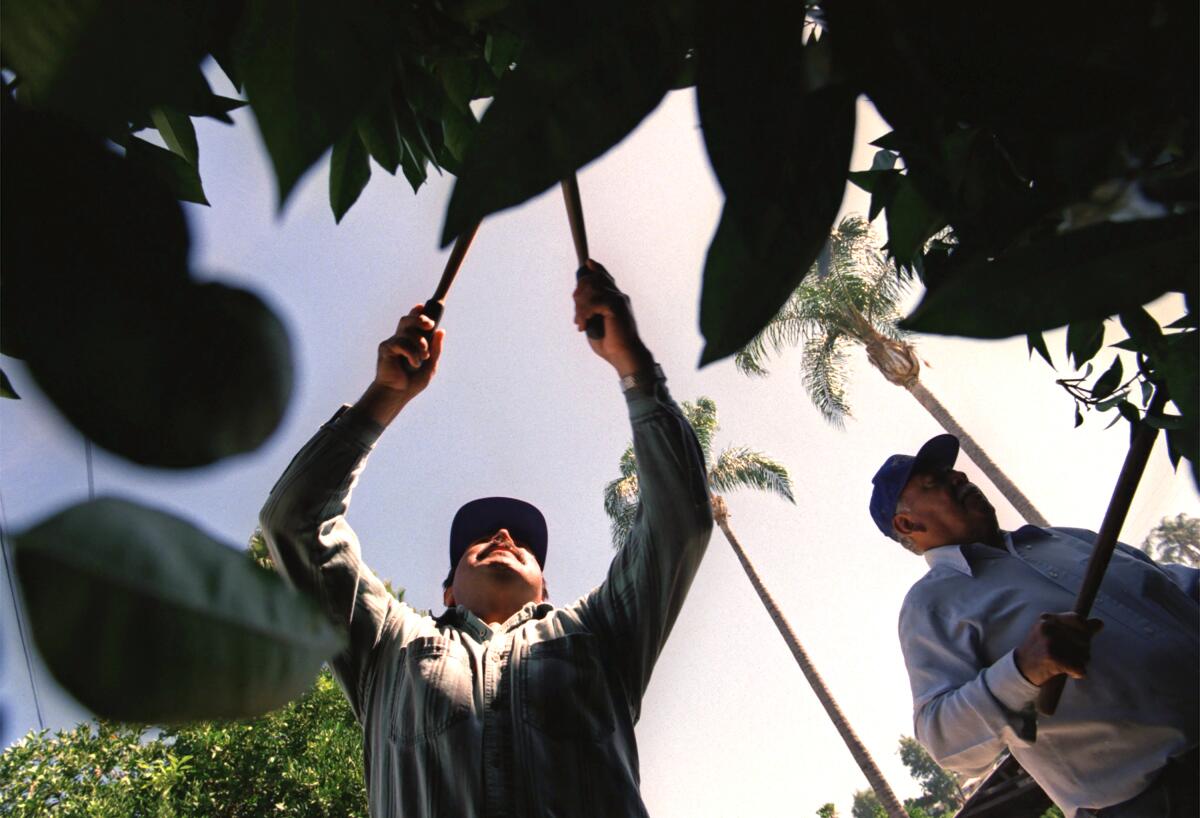
A century-old orange grove in Tarzana appears on its way to becoming the site of luxury homes, a transformation that would mark the end of commercial citrus farming in the San Fernando Valley, where the crop was once a mainstay.
At 14 acres, Bothwell Ranch represents less than one-thousandth of what once was, before the orchards and ranches of the Valley gave way to vast tracts of housing and commercial buildings to serve residents. Citrus production amid the multimillion-dollar homes is far from viable, and the parcel of land is now owned by a developer who intends to fill most of it with houses.
Los Angeles city planning officials held a public hearing Wednesday to collect comments before deciding whether to give the owners the green light to build 21 two-story homes while preserving a third of the site on Oakdale Avenue as a publicly owned orange grove managed by the Mountains Recreation and Conservation Authority for educational purposes.
City officials are still gathering information about the planned development, but Henry Chu, the city zoning administrator for the project, said Wednesday that he is inclined to approve it within a few weeks.
While hard to imagine today, Los Angeles was the top agricultural county in the nation for most of the first half of the 20th century, according to Rachel Surls, co-author of “From Cows to Concrete: The Rise and Fall of Farming in Los Angeles.” Citrus crops were as integral to that success as they were to the branding and selling of Southern California as a bucolic, desirable place to live.
“The Los Angeles Chamber of Commerce, different citrus marketers and organizations such as Sunkist oranges were very much a part of basically making Los Angeles look like this golden, almost tropical, agricultural paradise where people could come and get a whole new start,” Surls explained. “That positioning of Los Angeles as a place where citrus grew was really, really key to the growth of Los Angeles.”
With history in mind, City Councilman Bob Blumenfield announced in 2022 that after years of negotiations a deal had been reached between the site’s new owners, Borstein Enterprises, and the Mountains Recreation and Conservation Authority to preserve a third of it.
“While I wish there was a way to save the entire Bothwell Ranch, with this partnership we can save a large amount of it to be run by one of the best land preservation organizations in the country,” Blumenfield said.
The Bothwell Ranch gets its name from Lindley Bothwell, who purchased the farmland in 1926 after earning a degree in agriculture from Oregon State University, Blumenfield said. At the time, the citrus orchard was about 6 years old and totaled 100 acres. The Bothwell family sold off pieces of the land over the years but maintained a farming operation for decades until Ann Bothwell died in 2016. The ranch survived even as other ranches were driven out by rising land value during the housing boom after World War II.
It is now likely to be replaced by a development called Oakdale Estates. The owners have said they intend for the houses to include environmentally sustainable features such as “cool” roofs that reduce heat reflection into the atmosphere and a new street with a system that captures and filters rainwater before reusing it to irrigate landscaping that will include some citrus trees.
Two rows of citrus trees are expected to line Oakdale Avenue on the west side of the site as a homage to the land’s past, according to plans for the development. Designs for the residences call for modern farmhouses and Spanish architecture, meant to embrace the heritage of the San Fernando Valley.

Abelardo Hernandez, left, and Al Trujillo trim orange trees at Bothwell Ranch in the San Fernando Valley on Aug. 27, 1998.
(Frank Wiese / Los Angeles Times)
A critic of the project, Jeff Bornstein, said at Wednesday’s city meeting that the development should be reduced in scope to preserve more of the orchard.
“We have very little that marks our heritage of the past in the west San Fernando Valley,” he said. “We need to save a lot more of these” trees.
The citrus trees planted in the 1980s are past their prime fruit-bearing years and suffer from the effects of under-watering, a representative for the developer said.
When seen in aerial photographs, the ranch looks like a lush green anachronism — plucked from the agrarian past and neatly but nonsensically deposited into a suburban jewel box of red roofs and turquoise pools and tennis courts.
“We’re overrun,” as the late Bothwell matriarch told a reporter in 1998 with a sigh. “But you can’t stand in the middle of Ventura Boulevard and say, ‘Stop!’”
Times staff writer Julia Wick contributed to this report.
